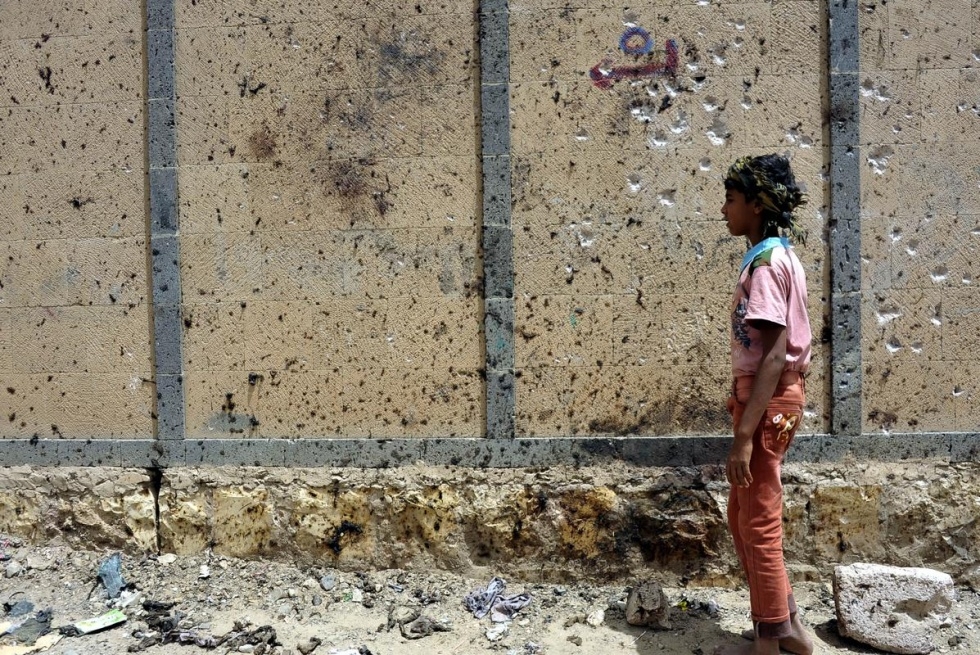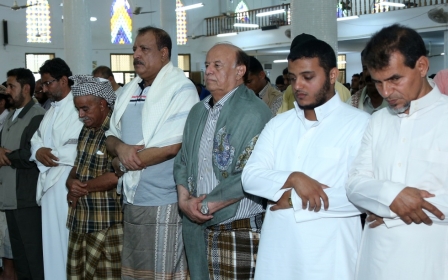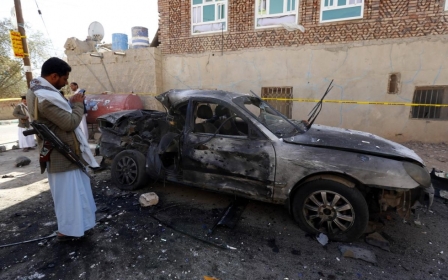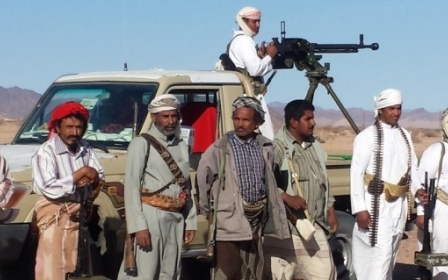Fears Yemen will descend into civil war after bombings

At around noon on Friday three men wearing explosives belts entered mosques in Yemen’s capital Sanaa and blew themselves up. The explosions were relatively small but the proximity of the bombers to those around them – it was Friday prayers – meant they were devastating. 137 people were killed and scores injured. By nightfall, local hospitals were appealing for blood donations as smoke rose above the city.
Like the survivors picking through the remains of the destroyed mosques in Sanaa on Friday, Yemenis are today trying to make sense of the deepening turmoil gripping their country four years after a popular uprising ousted former strongman Ali Abdullah Saleh.
Al-Qaeda in the Arabian Peninsula, militants who exploit anger at the West exacerbated by US drone strikes, have carried out similar terrorist attacks in the capital. But Friday's seemed different. Among the victims were doctors, children. Even for some Yemenis hardened by years of violence, the attack was unique in its cruelty.
Since 2011 diplomats and observers have warned of the "cracks" in Yemen’s transition; "spoilers" and "political rivalries" hampering the UN's efforts to steer the country toward democracy. In recent days those cracks appear to have widened into chasms.
The forces vying for power in Yemen today include a former president who wields great influence, a current president who is hamstrung and politically impotent, a mainstream Sunni Islamist party, a Shiite militia backed by Iran, an al-Qaeda offshoot, and a separatist movement pushing for independence in the south.
Since Saleh’s fall from grace in 2011 each has been involved in a game of shifting alliances and score settling as they jostle for power and foreign support and stake out positions that are increasingly hard and uncompromising.
Until around the middle of last year this scrap for power was largely fought through politics, under the veneer of the UN-brokered transition agreement. But recent events – the seizure of Sanaa by the Zaydi Shiite Houthis in September and the escape in February by president Abd Rabbuh Monsour Hadi from Sanaa to Aden - have shifted dynamics. Violence, not politics, is now the means to put pressure and exact demands on ones opponents.
“Last year there we were discussing elections, constitutional amendments, national dialogue and reconciliation…” a senior Yemeni official told me on Friday. “Now all I hear is Sunni vs Shiite, proxy wars, military infighting and the resurgence of the deep state.”
Beneath the deepening conflict is the rivalry between Saleh and Hadi, two leaders who have both enjoyed Western backing and both been toppled after popularly backed movements rose up against them. Hadi, who replaced Saleh in 2011 after years as his deputy, is hunkered down in the port city of Aden, the bastion of a long-running separatist movement, where he is trying to rally support through popular committees in order to eject military generals still loyal to Saleh.
Though Hadi has denounced the Houthis as putschists and appears to have the nominal backing of Yemen’s key regional allies, Saudi Arabia and other Gulf states, his prospects of building a powerful base in Aden, where many separatists view him with disdain, appear slim.
Hadi, like many Yemenis, is convinced that Saleh, who remains in Sanaa, is in cahoots with the Houthis and is plotting a comeback. (In a statement on Thursday Hadi described a fighter-jet attack on the presidential palace in Aden as an “attempted coup” backed by the previous regime.) But as the Houthis march south, capturing towns and villages, his pronouncements seem increasingly irrelevant.
Houthi fears
Friday’s bombings which targeted mosques in Sanaa often visited by supporters of the Houthis has shone the spotlight on the country’s new de facto rulers.
While the Houthis have proven themselves shrewd military tacticians – plundering weapons, seizing government buildings and routing al-Qaeda strongholds – Friday’s attack raises questions about their ability to provide security and enforce the rule of law in Sanaa and other areas they control.
For many ordinary Yemenis, fatigued by the drought, power cuts and political wrangling that has followed in the wake of the 2011 uprising, the Houthis' rise to power and their appeals to revolutionary ideals (an end to corruption and Western influence) only signals more disruption and chaos. The staging of a protest outside the presidential palace last week calling for Ali Abdullah Saleh’s son, Ahmed Ali, to stand as president may be telling and indicate a growing desire amongst some for a return to "normality".
While the Houthis maintain their agenda is reformist, their opponents accuse them of trying to establish a Shiite theocracy and of being funded by Iran’s government bent on opening a new “Shiite lung” in the Middle East.
Whatever the Houthis’ intentions, their recent expansion has introduced a troubling new dynamic with sectarian conflict now breaking out across the country.
“You hear it now on the street, in buses, people talking about Sunni and Shiite - Saudi versus Iran,” said Mohammed al-Kibsi, a 32-year-old tennis coach and the son of a prominent politician. “I don’t think it’s about to tear Yemen apart like it did in Iraq but it’s a rift in society. If it continues to be exploited by extremists, I fear it will only grow wider.”
New MEE newsletter: Jerusalem Dispatch
Sign up to get the latest insights and analysis on Israel-Palestine, alongside Turkey Unpacked and other MEE newsletters
Middle East Eye delivers independent and unrivalled coverage and analysis of the Middle East, North Africa and beyond. To learn more about republishing this content and the associated fees, please fill out this form. More about MEE can be found here.




